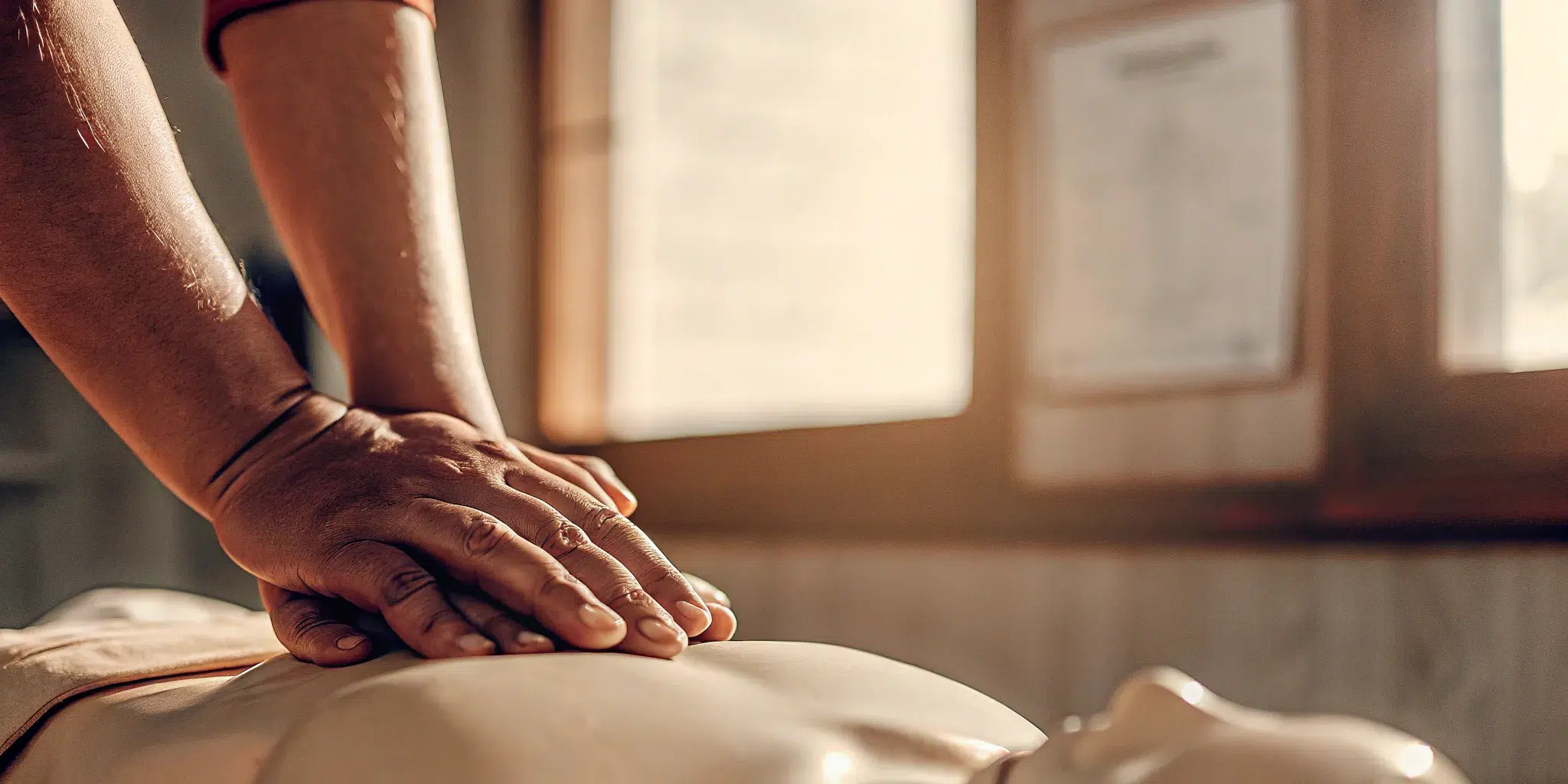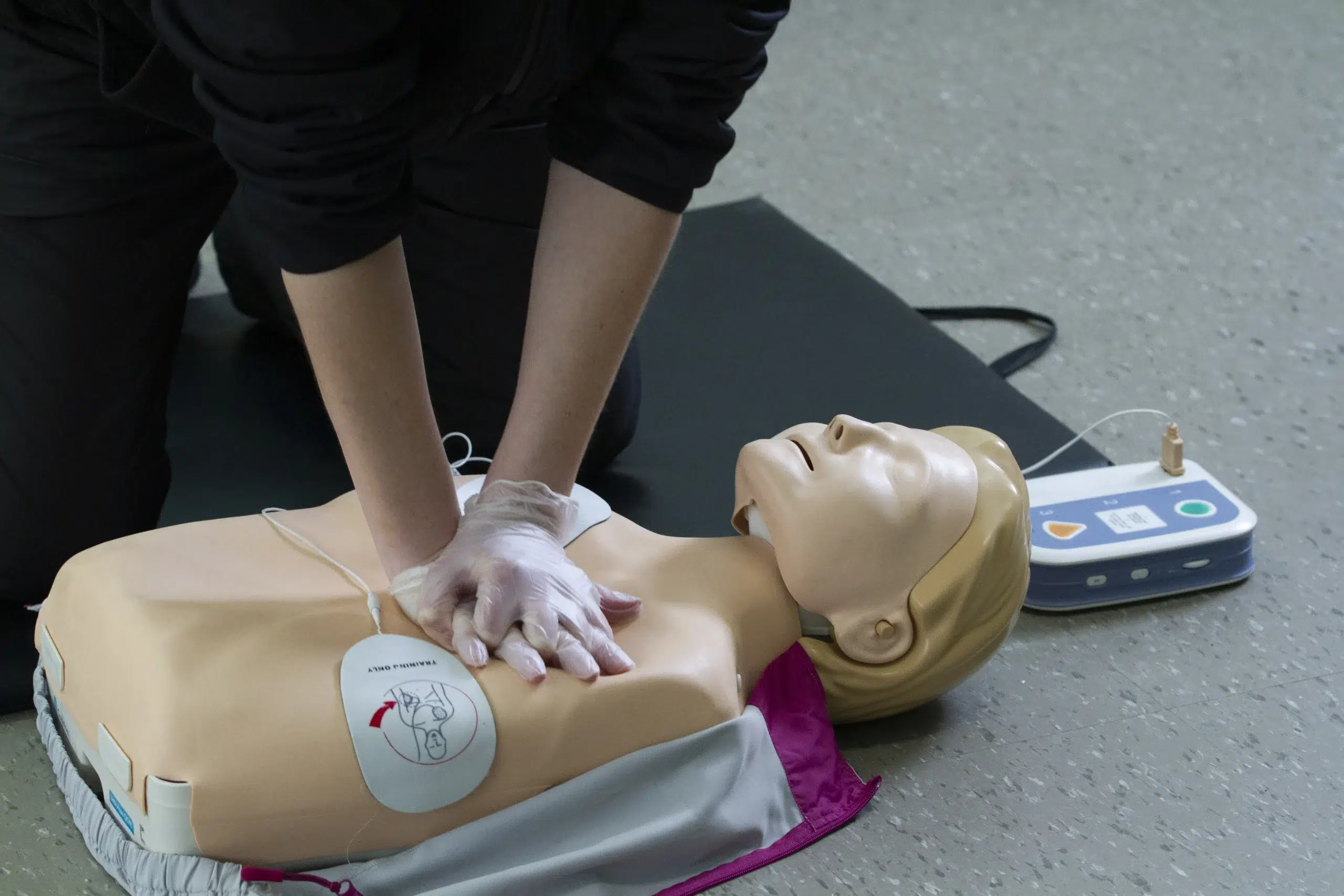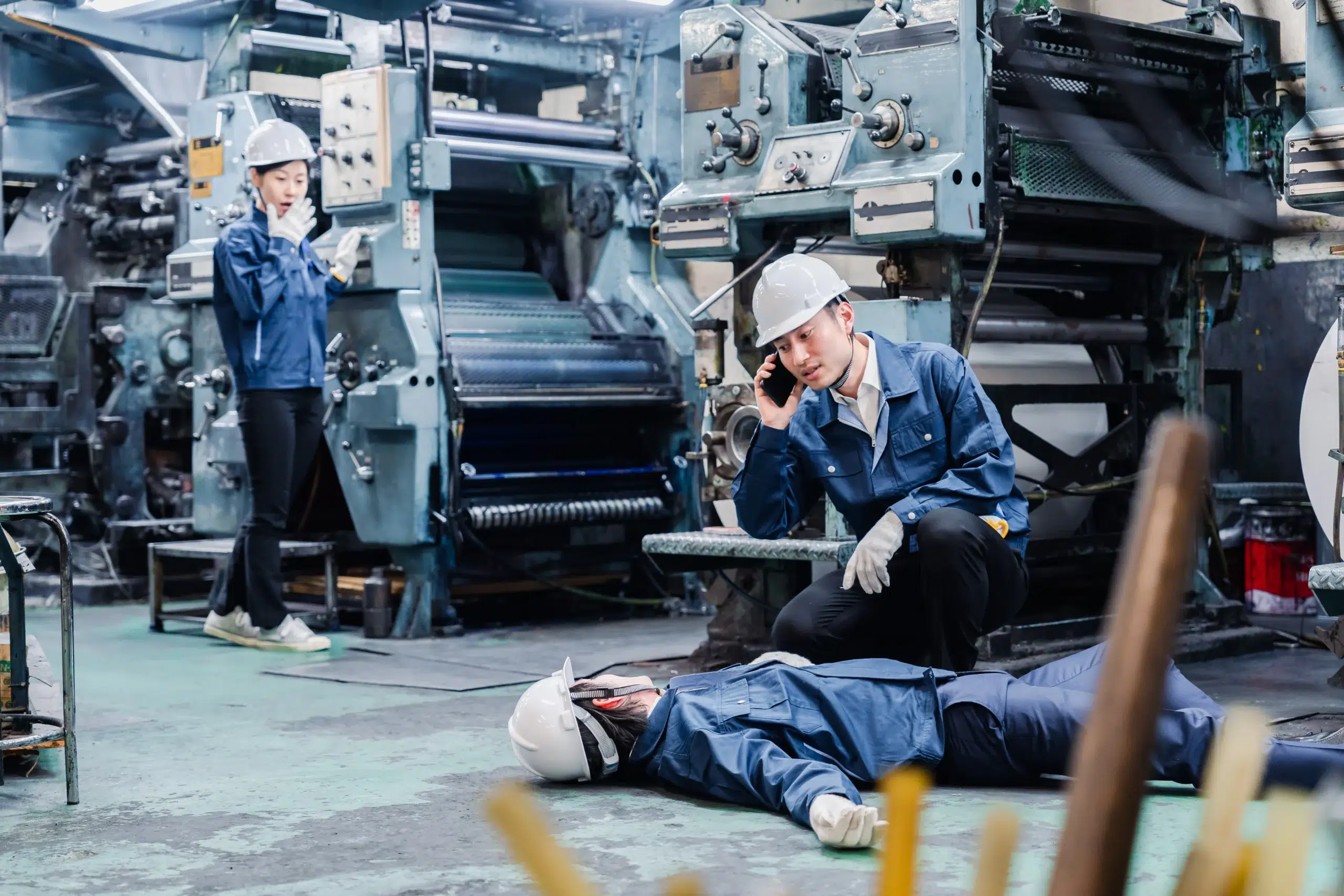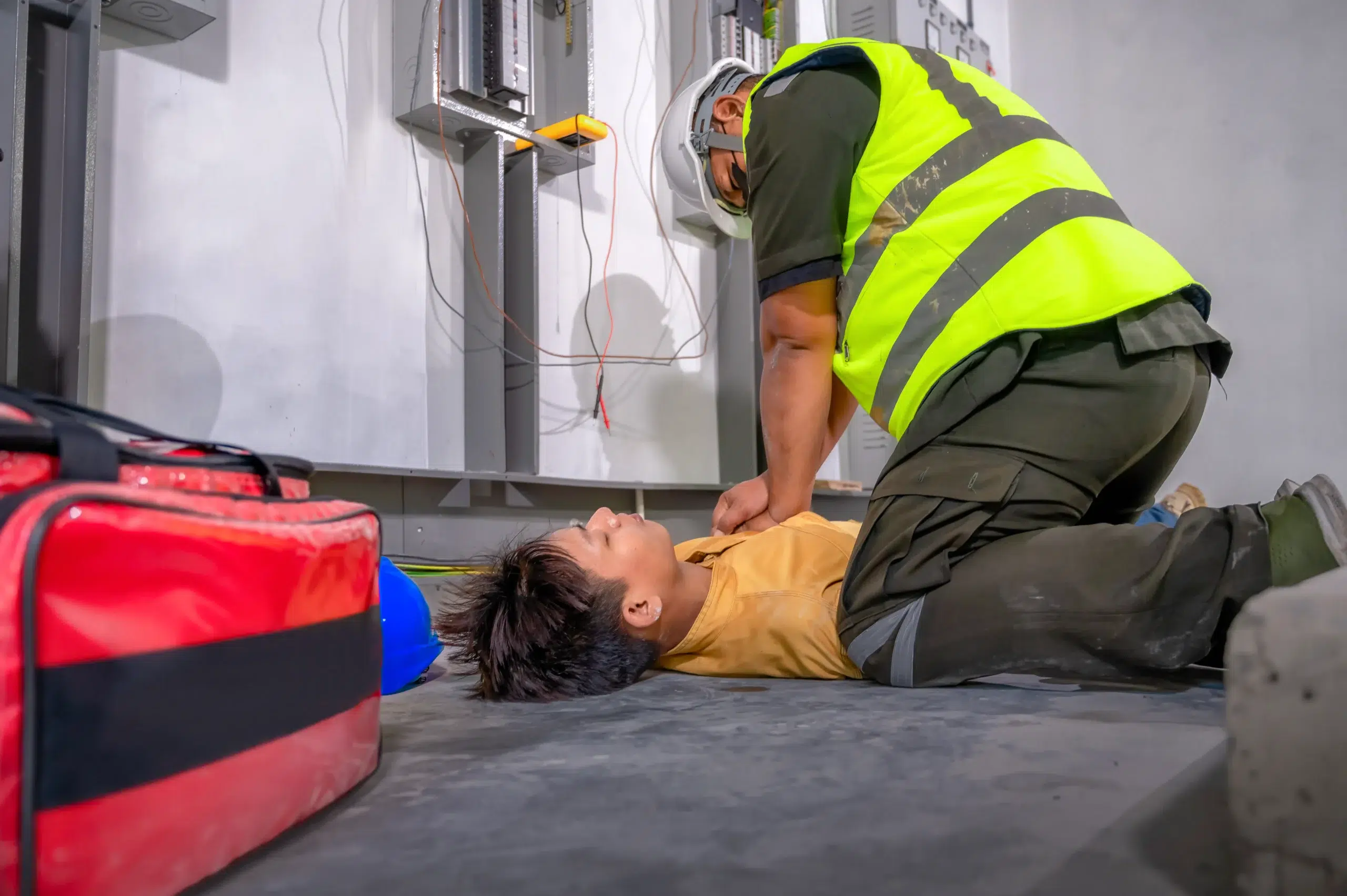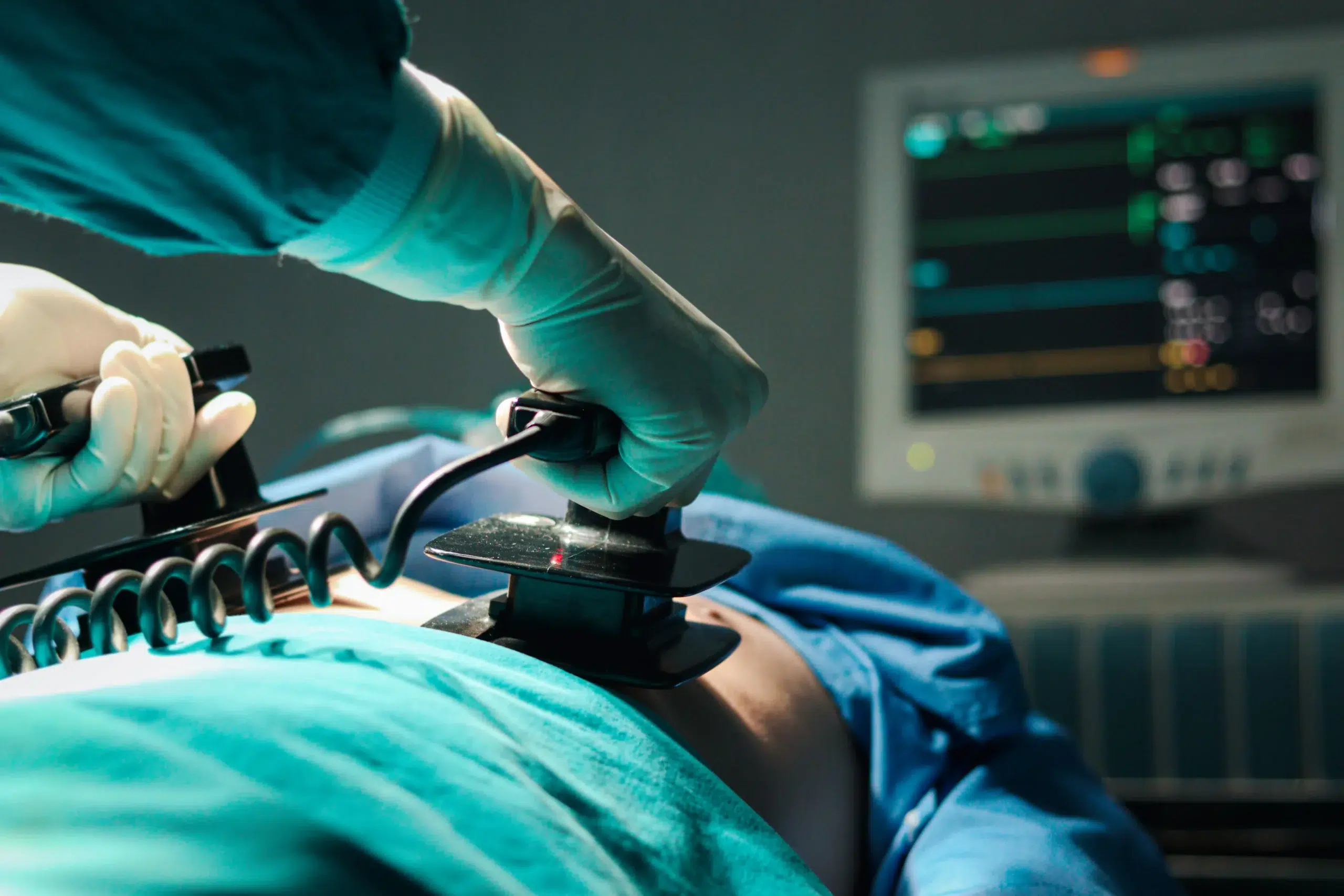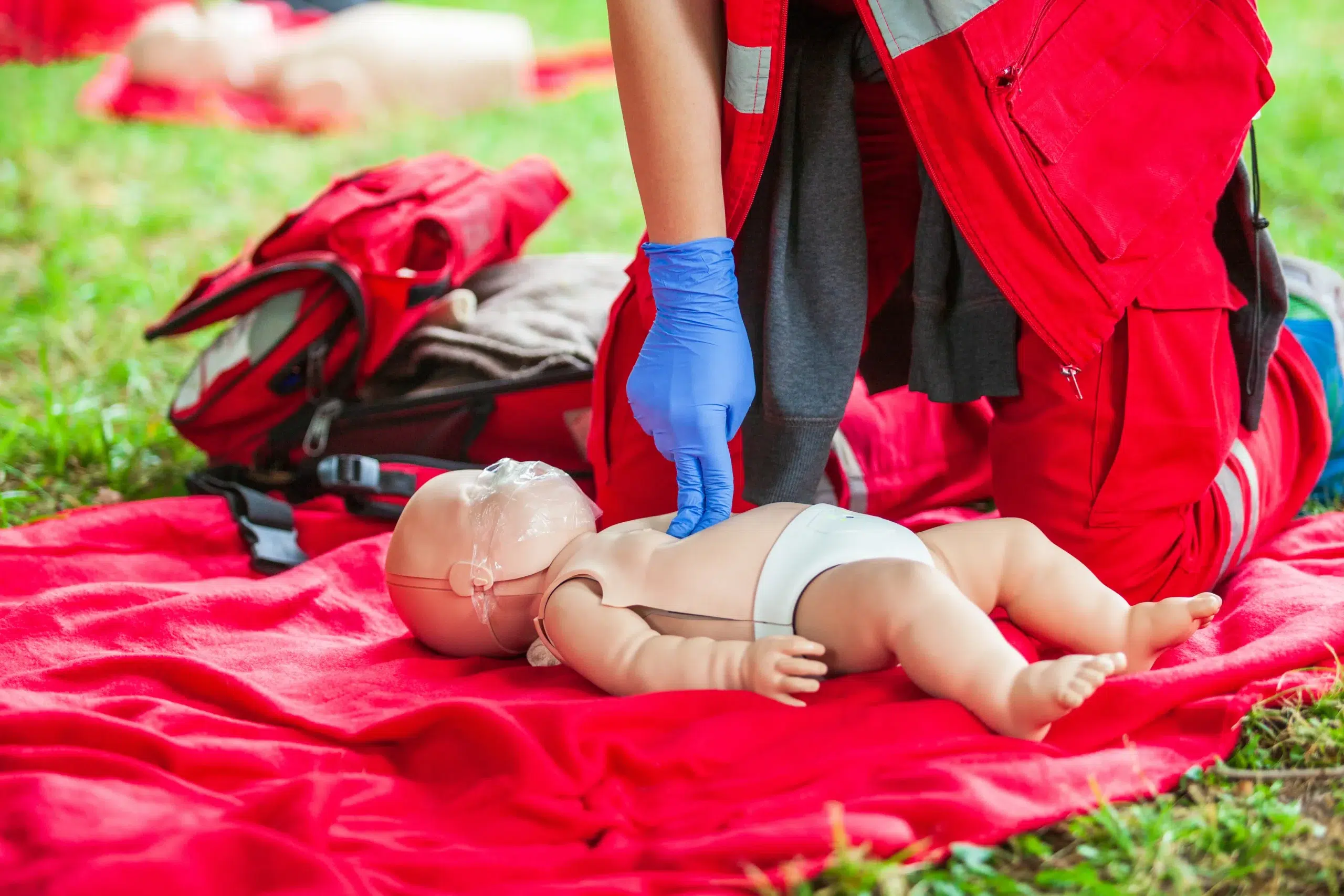Emergencies can happen anytime, anywhere. Would you know what to do if someone near you experienced sudden cardiac arrest? CPR certification in Danville provides the skills and confidence to respond effectively in such critical situations. This guide explores the various CPR certification courses available in Danville, including BLS, ACLS, and PALS, catering to different skill levels and career paths. We’ll also discuss the importance of choosing the right course format, understanding prerequisites and renewal processes, and debunking common CPR myths. Whether you’re a healthcare professional seeking recertification or a community member wanting to learn this life-saving skill, this guide will help you understand the value of CPR certification in Danville and how to get started.
Key Takeaways
- CPR certification builds confidence and equips you with life-saving skills. Whether you’re a healthcare professional, a childcare provider, or simply a concerned citizen, CPR training empowers you to respond effectively in medical emergencies.
- Danville CPR Classes offers flexible and affordable AHA-certified courses. Explore their range of programs, from basic CPR and First Aid to advanced certifications like BLS, ACLS, and PALS, to find the right fit for your needs and schedule.
- Knowing CPR benefits everyone. It creates safer communities and opens doors to various career opportunities. Don’t let common misconceptions prevent you from learning this invaluable skill.
What is CPR Certification and Why Does it Matter?
CPR certification formally recognizes that you’ve completed training in cardiopulmonary resuscitation (CPR) techniques. This training gives you the skills to respond effectively in emergencies where someone’s breathing or heartbeat has stopped. While you’re not required to have a CPR certification to perform CPR, it ensures you’re well-prepared and understand the latest techniques and guidelines, giving you the confidence to act quickly when every second counts.
Sadly, hundreds of thousands of Americans die from sudden cardiac arrest each year. Learning CPR dramatically increases the chance of survival during a cardiac emergency. It helps maintain blood flow to vital organs until professional medical help arrives. The American Heart Association emphasizes how CPR keeps oxygen flowing to these vital organs, buying precious time. This immediate action can be the difference between life and death.
Getting your CPR certification from a respected organization like the American Heart Association (AHA) matters. The AHA is known for its high-quality training and evidence-based guidelines. These certifications are widely accepted by employers across various fields, from healthcare and education to other professions that value these skills. For more information on reputable CPR certifications, this resource may be helpful. Ultimately, CPR certification empowers you to save lives and gives you peace of mind, knowing you’re prepared for an emergency.
CPR Certification Courses in Danville
Danville offers a variety of CPR certification courses catering to everyone from healthcare professionals to community members. Let’s explore the most common options:
Basic Life Support (BLS)
Basic Life Support (BLS) certification is fundamental for anyone in healthcare or interested in responding to medical emergencies. BLS courses cover essential life-saving skills, including CPR for adults, children, and infants, AED use, and rescue breathing. Danville CPR Classes offers BLS certification aligned with American Heart Association guidelines, often combining online learning with in-person skills sessions. This blended format lets you learn at your own pace online, then practice with certified instructors.
Advanced Cardiac Life Support (ACLS)
For healthcare professionals in emergency rooms, intensive care units, or other critical care settings, Advanced Cardiac Life Support (ACLS) certification is essential. ACLS courses cover advanced procedures for managing cardiovascular emergencies, including cardiac arrest, stroke, and respiratory failure. These courses often use simulations and case studies to develop critical thinking and rapid response skills.
Pediatric Advanced Life Support (PALS)
Healthcare providers specializing in pediatric care should pursue Pediatric Advanced Life Support (PALS) certification. PALS training focuses on the unique needs of infants and children during medical emergencies. Like ACLS, PALS courses frequently incorporate simulations and hands-on practice to reinforce learning and build confidence.
Heartsaver CPR/AED
Designed for individuals outside of healthcare, the Heartsaver CPR/AED course equips people with the skills to respond to sudden cardiac arrest and other emergencies. Covering basic CPR and AED use, this course benefits teachers, coaches, community members, and anyone wanting to be prepared. Heartsaver courses are readily available in Danville, offering accessible training for those looking to make a difference.
Where to Get CPR Certified in Danville
Finding the right CPR certification course is crucial. Luckily, Danville and the surrounding areas offer several choices to fit your needs. Here’s a rundown of where you can get certified:
Danville CPR Classes
Danville CPR Classes provides a range of CPR and First Aid training options, including BLS Provider courses and convenient on-site training at your home or office. This flexibility works well for both individuals and groups. They also offer specialized courses like the EMSA Child Care Health & Safety program, which covers pediatric CPR, First Aid, and other essential safety information for childcare providers. Their commitment to a low price guarantee makes them a budget-friendly choice.
American Red Cross
The American Red Cross is a well-known provider of CPR and First Aid training. They offer various courses, from basic CPR to more advanced certifications. Check their website for class schedules and locations near you. If you’re pursuing a healthcare career, confirm which Red Cross course aligns with your program requirements.
Local Hospitals and Medical Centers
Many hospitals and medical centers in and around Danville offer CPR certification courses, often designed for healthcare professionals. These courses typically include hands-on training and adhere to the latest American Heart Association guidelines. Contact your local hospitals directly to ask about course availability and registration. Since schedules can vary, it’s always a good idea to check directly with the hospital.
Community Colleges
Community colleges, such as the Danville Area Community College, often offer CPR certification courses. These can be a cost-effective way to get certified. Check the college’s website or course catalog for information on CPR classes, including any prerequisites. Because course offerings can change each semester, confirm current availability before making plans.
Cost and Value of CPR Certification in Danville
Getting CPR certified is an investment in life-saving skills, and understanding the costs is an important first step. This section breaks down the typical price ranges for CPR certification in Danville, factors that influence pricing, available discounts, and the long-term value this training provides.
Average Price Ranges
CPR certification courses in Danville typically cost around $120. This usually covers the online portion of the BLS course, the in-person skills testing, and your official certification card. For instance, the BLS CPR Provider Heartcode course at Danville CPR Classes offers a blended learning experience, allowing you to complete the coursework online in 1–2 hours before scheduling a 40–60 minute skills session.
Factors Affecting Course Prices
Several factors can affect the price of CPR certification. The type of certification you pursue (BLS, ACLS, PALS, etc.) will influence the cost, as will the organization providing the training. The course format—online, in-person, or blended—also plays a role. Plus, ongoing research into effective training strategies for healthcare professionals may lead to adjustments in course offerings and pricing.
Discounts and Group Rates
Many CPR training providers offer discounts, making these essential skills more accessible. Danville CPR Classes, for example, offers a student discount of $15 for those enrolled in medical, EMT, or dental programs. Contact providers directly to inquire about group rates for your team or organization.
Long-Term Benefits of Certification
While performing CPR doesn’t legally require certification, completing a CPR course provides more than just a credential—it equips you with the confidence and competence to act quickly and effectively during emergencies. Knowing you have the skills to potentially save a life is invaluable, offering peace of mind and the ability to make a real difference.
Course Duration and Formats
Choosing the right CPR course format depends on your learning style and schedule. Let’s break down the most common options: in-person, online, and blended learning.
In-Person Training
In-person CPR training offers a hands-on learning experience, typically lasting between three and four hours. This format emphasizes practical skills and allows for real-time feedback from certified instructors. The interactive environment of in-person classes encourages questions and discussions, which can deepen your understanding and improve your retention of the material. For many, the opportunity to practice skills on mannequins and receive personalized guidance makes in-person training the preferred method. Danville CPR Classes offers various in-person courses, including CPR and First-Aid certification.
Online Courses
Online CPR courses provide flexibility and convenience, allowing you to learn at your own pace. These courses usually take between one and two hours to complete. While online learning offers scheduling freedom, it often lacks the hands-on practice crucial for confidently applying these skills during real-life emergencies. However, online courses can be a great option for refreshing your knowledge or fulfilling certain certification requirements. If you’re looking for a flexible online option, check out our RQI classes designed for healthcare professionals.
Blended Learning
Blended learning combines the best of both worlds, integrating online instruction with in-person skill sessions. This format typically involves completing the theoretical coursework online, followed by a shorter, hands-on session with an instructor. Blended learning offers a balance of flexibility and practical application. You can learn the concepts at your own speed online and then solidify your skills through guided practice. This approach can be particularly helpful for those who prefer a more well-rounded learning experience. Contact us at Danville CPR Classes to learn more about our blended learning options.
Prerequisites and Renewal
Who Can Get Certified?
You don’t need prior medical experience to learn CPR. Anyone can become CPR certified—from concerned citizens wanting to help their communities to healthcare professionals maintaining required certifications. Some advanced courses may require proof of current basic CPR certification, like those offered at Danville Area Community College. However, entry-level CPR courses are open to everyone. Even without formal certification, remember that performing CPR in an emergency is always better than doing nothing. Learning these skills can make a real difference.
How Often to Renew
CPR certifications are typically valid for two years. Check with your certifying organization, such as the American Heart Association or the American Red Cross, for specific renewal guidelines. Staying current with your certification ensures your skills and knowledge are up-to-date, allowing you to respond confidently and effectively in emergencies. You can find renewal courses in the Danville area.
Recertification Steps
Recertification usually involves taking a renewal course that covers the latest CPR guidelines and techniques. These courses often combine a review of essential skills with a practical assessment to confirm your competency. While research continues to refine the best approaches for CPR training, current recertification processes effectively maintain your skills and keep you informed of any updates in life-saving procedures. For more information about recertification courses and debunking common CPR myths, visit the Danville CPR Classes blog.
Getting CPR Certified in Danville
Getting your CPR certification is straightforward. This section walks you through the steps, from registration to assessment. We’ll use Danville CPR Classes as an example, but the general process is similar for other providers.
Register and Enroll
First, find a class that fits your schedule and needs. Danville CPR Classes offers various courses, including CPR and First Aid, EMSA Child Care Health & Safety, and RQI classes. Check their website or contact them for current schedules and to register. Many training centers offer flexible scheduling.
Course Materials and Preparation
Once registered, you’ll receive information about the course materials. This typically includes a student handbook or online resources covering essential topics like recognizing when CPR is needed, understanding basic life support (BLS) techniques, performing chest compressions and rescue breaths, and using an AED. Reviewing these materials beforehand will help you feel prepared for the hands-on portion of the class.
Practice and Assessment
CPR certification involves a practical skills assessment to ensure you can perform CPR effectively. As an AHA Training Center, Danville CPR Classes likely uses the RQI (Resuscitation Quality Improvement) program, which includes skills testing. This typically involves demonstrating your CPR technique on a manikin under the guidance of a certified instructor. The instructors are there to support you and provide feedback. The goal is to build your confidence and competence in performing CPR. They also offer a low price guarantee.
Choose the Right CPR Course
Finding the right CPR course is crucial for effective training and building confidence. It’s more than just ticking a box; it’s about equipping yourself with life-saving skills. Here’s a breakdown of how to choose the best CPR course for you:
Assess Your Needs
First, think about why you need CPR certification. Is it for your job? Many professions, from healthcare providers and teachers to lifeguards and childcare workers, require it. Some states even mandate CPR training for high school students. Knowing the specific requirements for your profession or personal goals will guide you toward the right course. Do you need basic CPR and first aid knowledge, or more advanced training like BLS or ACLS? Clearly defining your needs is the first step.
Compare Courses
Once you know what you’re looking for, compare available courses in your area. Look at what different providers offer. For example, here in Danville, Danville CPR Classes offers a range of American Heart Association courses, including CPR, First Aid, BLS, ACLS, PALS, and more specialized training like the EMSA Child Care Health & Safety program. Consider what works best for your schedule and learning style. Do you prefer weekend classes, weekday evenings, or a blended learning format? Comparing different course structures and schedules will help you find the most convenient option.
Instructor Qualifications
The quality of your training depends heavily on the instructor. Look for courses led by experienced and certified instructors. Check if the training center is an authorized provider for a recognized organization like the American Heart Association. A good instructor makes all the difference in your learning experience, so don’t hesitate to ask about their credentials and teaching style. Danville CPR Classes prides itself on its highly qualified instructors and commitment to a high-quality learning experience. Their low price guarantee also ensures you’re getting excellent value.
Check Reviews and Testimonials
Finally, see what other students are saying. Online reviews and testimonials offer valuable insights into the quality of a course and the overall learning experience. Websites like Yelp often have reviews for local CPR training providers. Reading about other people’s experiences can give you a better sense of what to expect and help you make an informed decision. Don’t hesitate to contact training centers directly with any questions. A reputable provider will be happy to address your concerns and provide more information about their courses.
Debunking CPR Myths
Let’s clear up some common misconceptions about CPR. These myths can prevent people from seeking this life-saving training, so let’s set the record straight.
“CPR is Only for Healthcare Professionals”
It’s easy to think CPR certification is just for doctors and nurses, but that’s simply not true. Emergencies can happen anytime, anywhere, and having CPR training means you can help a friend, family member, or even a stranger. CPR and First-Aid certification empowers anyone to respond effectively in a crisis. You don’t need a medical background to learn these essential skills.
“CPR Training Takes Too Long”
Worried about a huge time commitment? Don’t be. CPR courses are designed to be concise and easy to understand. Many programs, including those at Danville CPR Classes, can be completed in just a few hours. It’s a small investment of time for a potentially life-saving skill. Check out our course options to see how easily you can fit training into your schedule.
“You Could Cause Harm Doing CPR”
Hesitation is natural, but the truth is, doing nothing is far more dangerous than attempting CPR. The risk of causing harm is minimal, while the potential to save a life is significant. Remember, proper CPR training teaches you the correct techniques to minimize any potential risks. Learning CPR equips you with the confidence to act quickly and effectively when every second counts.
“CPR Restarts Hearts”
Movies often dramatize CPR as a magical heart-starter, but it’s more nuanced than that. CPR primarily keeps blood circulating and oxygen flowing to the brain and other vital organs. It buys precious time until professional medical help arrives. While CPR can sometimes help restart a heart, its main purpose is to maintain vital functions and increase the chances of survival. Learn more about the realities of CPR and how it saves lives by exploring our available courses.
Benefits and Career Opportunities
Personal and Professional Advantages
CPR certification equips you with the skills to respond effectively during medical emergencies. While you don’t technically need certification to perform CPR, a structured course builds confidence and ensures you’re well-prepared. This knowledge can make a profound difference, helping maintain vital oxygen flow until professional medical help arrives. It’s a powerful skill set that brings peace of mind, knowing you can act quickly when every second counts. Beyond personal satisfaction, CPR certification can enhance your professional profile. Many workplaces value these skills, especially in fields like healthcare, education, and childcare. Having this certification can make you a more competitive candidate.
Community Impact
Learning CPR extends beyond individual preparedness; it creates a safer environment for everyone. By understanding CPR and dispelling common misconceptions, more people can confidently respond in emergencies. This collective readiness fosters a culture of preparedness and mutual support within the community. When more individuals are equipped to handle emergencies, the impact on overall community health and safety is significant. It empowers individuals to take action, potentially saving lives and minimizing the effects of medical crises.
Potential Career Paths
CPR certification opens doors to various career paths. Many professions, including healthcare providers, teachers, lifeguards, and childcare professionals, require or highly recommend this certification. CPR training is also becoming increasingly common for high school students, providing a valuable foundation for future opportunities. If you’re considering a career in healthcare or a related field, CPR certification is a valuable asset. Danville CPR Classes offers a range of courses to meet diverse needs and skill levels. It’s a smart investment in your future, demonstrating your commitment to safety and preparedness.
Related Articles
- The Importance of CPR in Saving Lives – Danville CPR Classes
- CPR, BLS, ACLS, PALS, and First-aid Courses in Danville, CA
- BLS CPR Classes in Danville, CA – Danville CPR Classes
- AHA ACLS Classes in Danville – Danville CPR Classes
- AHA PALS Classes in Danville, CA – Danville CPR Classes
Frequently Asked Questions
What’s the difference between BLS and Heartsaver CPR/AED?
BLS (Basic Life Support) certification is more comprehensive and geared towards healthcare providers and those in emergency response roles. It covers CPR for adults, children, and infants, along with AED use and other essential life-saving techniques. Heartsaver CPR/AED, while still valuable, focuses on core CPR and AED skills for the general public and those in non-healthcare settings. It’s a great starting point for anyone wanting to learn these life-saving skills.
I’m not a healthcare professional. Do I really need CPR training?
Absolutely! Emergencies can happen anywhere, and knowing CPR can empower you to help a loved one, a stranger, or even a pet. While healthcare professionals frequently use CPR, these skills are invaluable for anyone. You never know when you might be the first responder in a critical situation.
How long does it take to get CPR certified?
CPR certification courses vary in length, but many can be completed in a single day or even a few hours. Online courses offer flexibility, while in-person classes provide hands-on practice. Blended learning combines both approaches. Check with your chosen training provider for specific course durations. Danville CPR Classes, for example, offers various formats to fit your schedule.
How much does CPR certification cost?
The cost of CPR certification varies depending on the course type, location, and training provider. However, many affordable options are available. Some organizations offer discounts for students, groups, or those renewing their certification. It’s always a good idea to compare prices and inquire about potential discounts before registering. Danville CPR Classes offers a low price guarantee, making it a budget-friendly choice.
Where can I find CPR classes near me?
Several organizations offer CPR classes, including the American Red Cross, local hospitals, community colleges, and specialized training centers like Danville CPR Classes. A quick online search can help you find courses in your area. Look for certified instructors and training aligned with recognized organizations like the American Heart Association.
This article was written for free by MEGA SEO.


